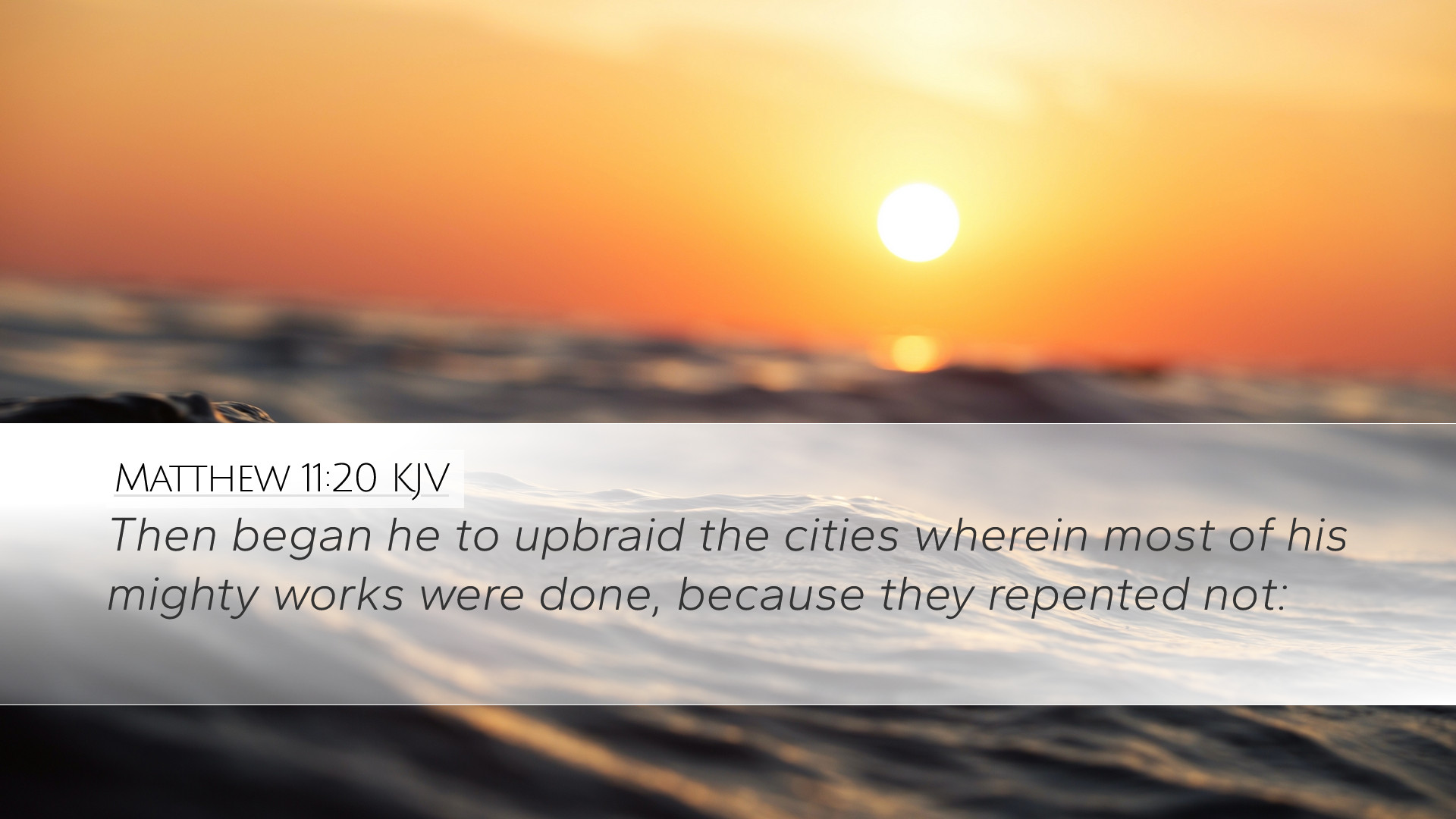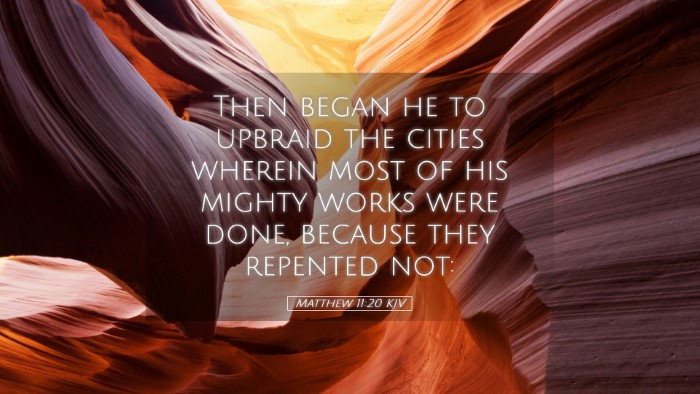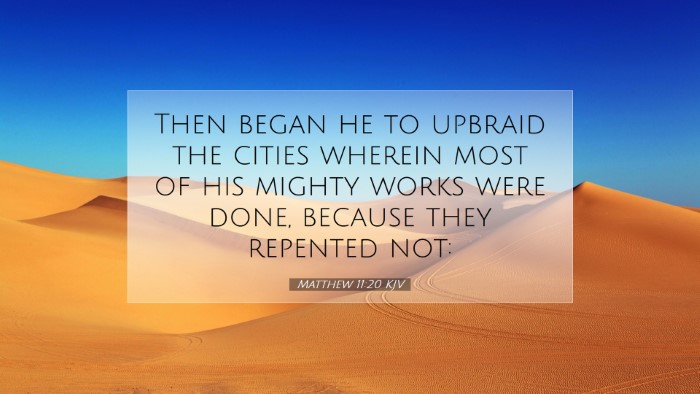Commentary on Matthew 11:20
Verse Reference: Matthew 11:20 - "Then began He to upbraid the cities wherein most of His mighty works were done, because they repented not."
Introduction
In this pivotal verse, we encounter a moment of rebuke from Jesus directed at the cities that witnessed His miraculous works yet remained unrepentant. This commentary synthesizes insights from notable public domain scholars like Matthew Henry, Albert Barnes, and Adam Clarke, providing a comprehensive reflection on the spiritual significance of this verse.
Contextual Analysis
To fully appreciate Matthew 11:20, it is crucial to examine its context within the surrounding passages. Jesus had just sent out His disciples and was proclaiming His message of repentance and the Kingdom of God. His miracles were intended to demonstrate His divine authority and compassion, yet the stark reality was that many who saw these wonders did not turn to Him in faith.
Commentary Insights
Matthew Henry's Perspective
Matthew Henry notes that this verse highlights the severe indignation of Christ towards those cities that had been recipients of His "mighty works." He argues that miracles in themselves do not guarantee faith; rather, they serve as opportunities for repentance. The refusal to respond to these miracles with heartfelt contrition is at the core of Jesus' rebuke. Henry emphasizes that unrepentant hearts render the divine works ineffective in leading individuals to salvation.
Albert Barnes' Interpretation
Albert Barnes provides a detailed examination of why Jesus chastised these cities. He suggests that the cities of Chorazin, Bethsaida, and Capernaum, among others, had access to the greatest teachings and miracles of Christ, yet they chose to ignore His message. Barnes underscores the principle that greater privileges come with greater responsibility, positing that those who have received the most profound revelations of truth are held to a higher standard of belief and obedience.
Adam Clarke's Analysis
Adam Clarke expands on the implications of Jesus' condemnation of these cities by drawing a connection to the concept of judgment. He notes that the rejection of Christ's message signifies a willful decision against divine truth. Clarke emphasizes that, in the context of the first-century Jewish world, the cities' hard-heartedness reflects a broader spiritual blindness that can still be observed in modern times. He warns that such a rejection may lead to a more severe judgment relative to those who lack such revelations.
Theological Implications
The rebuke of the cities carries rich theological implications. It speaks to the nature of sin, the human condition of hard-heartedness, and the call for genuine repentance.
-
Sin and Unrepentance: The cities represent humanity's struggle with sin—being spectators of God's work without internalizing its impact. Reflecting on this aspect can lead to profound self-examination within congregations.
-
Judgment and Accountability: The teaching that greater light results in greater accountability challenges believers to consider their own responses to the message of Christ.
-
Hope in Christ's Mercy: Despite the stern warning, there remains hope in Christ’s endless mercy. The invitation to repentance always stands, underscoring the redemptive message of the Gospel.
Practical Applications
For pastors, students, theologians, and Bible scholars, Matthew 11:20 serves as a reminder of the following applications:
-
Encouragement to Preach Repentance: The message of repentance must remain central in teachings, emphasizing its importance in response to God’s works.
-
Assessment of Spiritual Condition: The verse serves as a call to assess our own spiritual responsiveness to God's revelations in our lives.
-
Awareness of Privileges: Recognizing the privileges of faith, such as scripture and community, encourages vigilance in maintaining one's spiritual fervor.
-
Imparting the Urgency of Faith: Engaging communities cognizant of Christ’s works can inspire renewed faith and urgency to share the Gospel proactively.
Conclusion
Matthew 11:20 presents an essential call to contemplation regarding the nature of repentance and the responsibility that comes with witnessing God's mighty works. The insights provided by Henry, Barnes, and Clarke ensure a robust understanding of this critical text, signaling its weighty implications for both individuals and communities. As believers grapple with the reality of their spiritual state in light of Christ's rebuke, they are urged towards authentic repentance and a commitment to living out their faith in response to the overwhelming grace and truth they have received.


